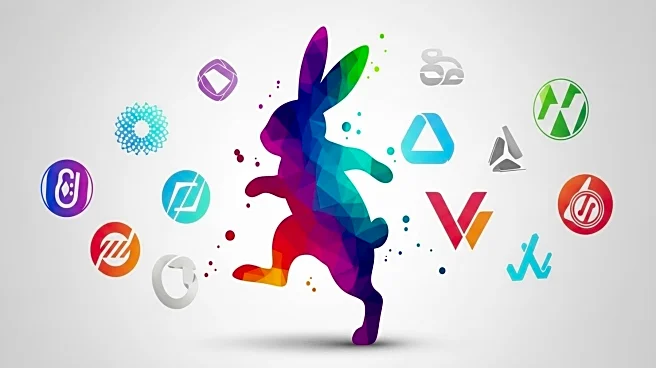What's Happening?
Bad Bunny, a prominent musician known for his diverse musical influences and cultural activism, has become a highly sought-after brand endorser in the United States. His collaborations with major brands such as Calvin Klein, Adidas, Corona, Gucci, and Crocs have demonstrated his ability to attract a young and diverse audience. Bad Bunny's unique style and social stance have made him an appealing partner for brands aiming to connect with historically marginalized groups. His endorsement deals are not solely driven by financial incentives but also by his affinity for the brands and their respect for his creative input.
Why It's Important?
Bad Bunny's endorsement deals highlight the growing importance of cultural representation and social activism in brand marketing strategies. By partnering with Bad Bunny, brands can tap into his influence and reach among younger, diverse demographics, which are increasingly significant in the U.S. market. His collaborations reflect a shift towards more inclusive and socially conscious marketing approaches, potentially setting a precedent for other brands seeking to engage with similar audiences. This trend underscores the evolving landscape of brand endorsements, where cultural relevance and social impact are becoming key factors.
What's Next?
As Bad Bunny continues to expand his influence, brands may increasingly seek partnerships with him to leverage his cultural and social appeal. Future collaborations could further explore themes of cultural heritage and social issues, aligning with Bad Bunny's personal values and public persona. Brands may also look to innovate their marketing strategies by incorporating elements of Bad Bunny's style and activism, potentially leading to new product lines or campaigns that resonate with his fan base.
Beyond the Headlines
Bad Bunny's role as a brand endorser raises questions about the ethical implications of celebrity influence in marketing. His ability to choose partnerships based on personal values rather than financial gain suggests a shift towards more authentic and meaningful brand collaborations. This approach could inspire other celebrities and brands to prioritize cultural and social considerations in their marketing efforts, potentially leading to a more ethically conscious industry.








